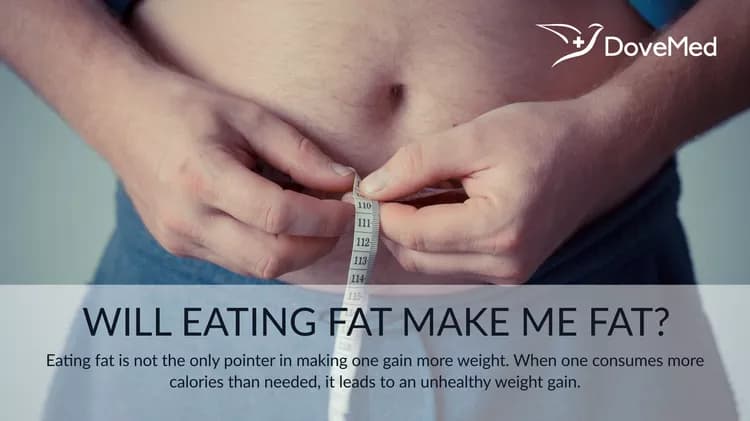Generally, there is a lot of confusion on whether eating fat, one of the major macronutrients required for the body, will make one fat. There are different types of fats found in food, namely unsaturated, saturated, monounsaturated, polyunsaturated, and trans fat; an analysis of these types will enable us to make better dietary choices in consuming the right types of fat.
The US Department of Agriculture’s dietary guidelines recommend that an individual get about 35% of their daily calories from fats. Thus, consumption of fat is not a problem, but rather is also a bodily requirement. However, eating the wrong type of fat can cause health issues. Dr. Key’s famous Seven Countries Study pointed out that in countries where individuals ate more saturated fat, cases of heart diseases were high, and the conclusion was that fat caused the diseases. Though there was a direct correlation present, other studies that were done later suggested that this is not the only causal factor.
Eating fat is not the only pointer in making one gain more weight. When one consumes more calories than needed, it leads to an unhealthy weight gain. With no physical activity, the problem is compounded and may lead to obesity. Consumption of fat is important, but must be limited to a certain extent. Fat is dense in calories. It contains 9 calories per gram of fat. In comparison, carbohydrates and proteins have only 4 calories per gram.
It is also easier to eat more fatty foods because it enhances the flavor of the food, and is more satisfying to the tongue. A detailed study by Johns Hopkins University School of Medicine, Epidemiology and Clinical Research, shows that the total amount of fat present in a diet is not linked to weight gain or disease. It is the type of the fat that is consumed, which is linked to chronic illness or weight gain.
Trans fats and saturated fats are bad for one’s health. They raise the level of cholesterol and put an individual at risk for cardiovascular diseases. Monounsaturated and polyunsaturated fats are good for one’s health, as they help in lowering the risk of heart diseases. Thus, replacing saturated and trans fats with these good fats helps gain their good health benefits. Good fats are found in olive oil, sunflower oil, canola oil, peanut oil, avocados, almonds, peanuts, cashews, soybean oil, corn oil, walnuts, flaxseed, salmon, tuna, mackerel, soymilk, tofu, and many others. The fats that are unhealthy are in foods like chicken with skin, beef, lamb, pork, whole-fat dairy products, commercially-baked pastries and bakery items, ice cream, butter, creams, and candies.
An omega-3 fatty acid, which is a polyunsaturated fatty acid, is considered to be another good fat. Research from the University of Maryland Medical Center says out that omega-3 fatty acids reduce inflammation and helps lower the risk of developing chronic heart problems. The research also quotes that omega-3 fatty acids are very much important for memory power and behavioral function.
The bottom line is that eating fat would not make one fat or sick; though, the consumption of the wrong types of fats would. That is why it is important to consume good dietary fats, such as monounsaturated and polyunsaturated fats, for overall health.
Related Articles
Test Your Knowledge
Asked by users
Related Centers
Related Specialties
Related Physicians
Related Procedures
Related Resources
Join DoveHubs
and connect with fellow professionals


0 Comments
Please log in to post a comment.